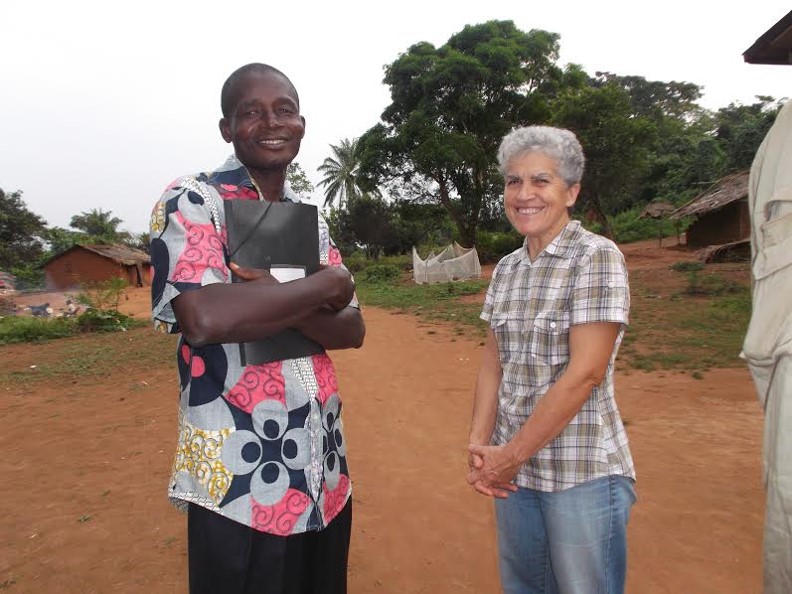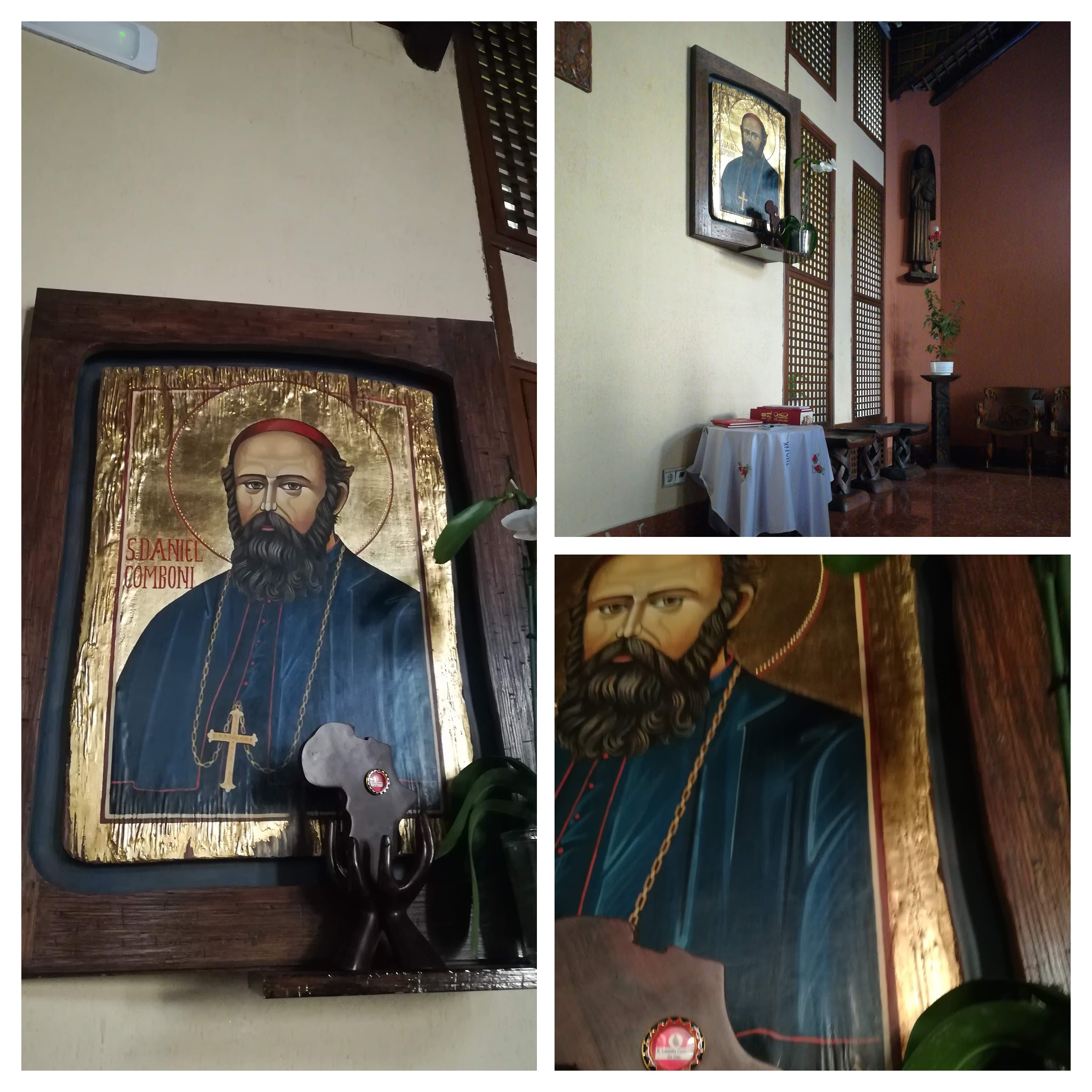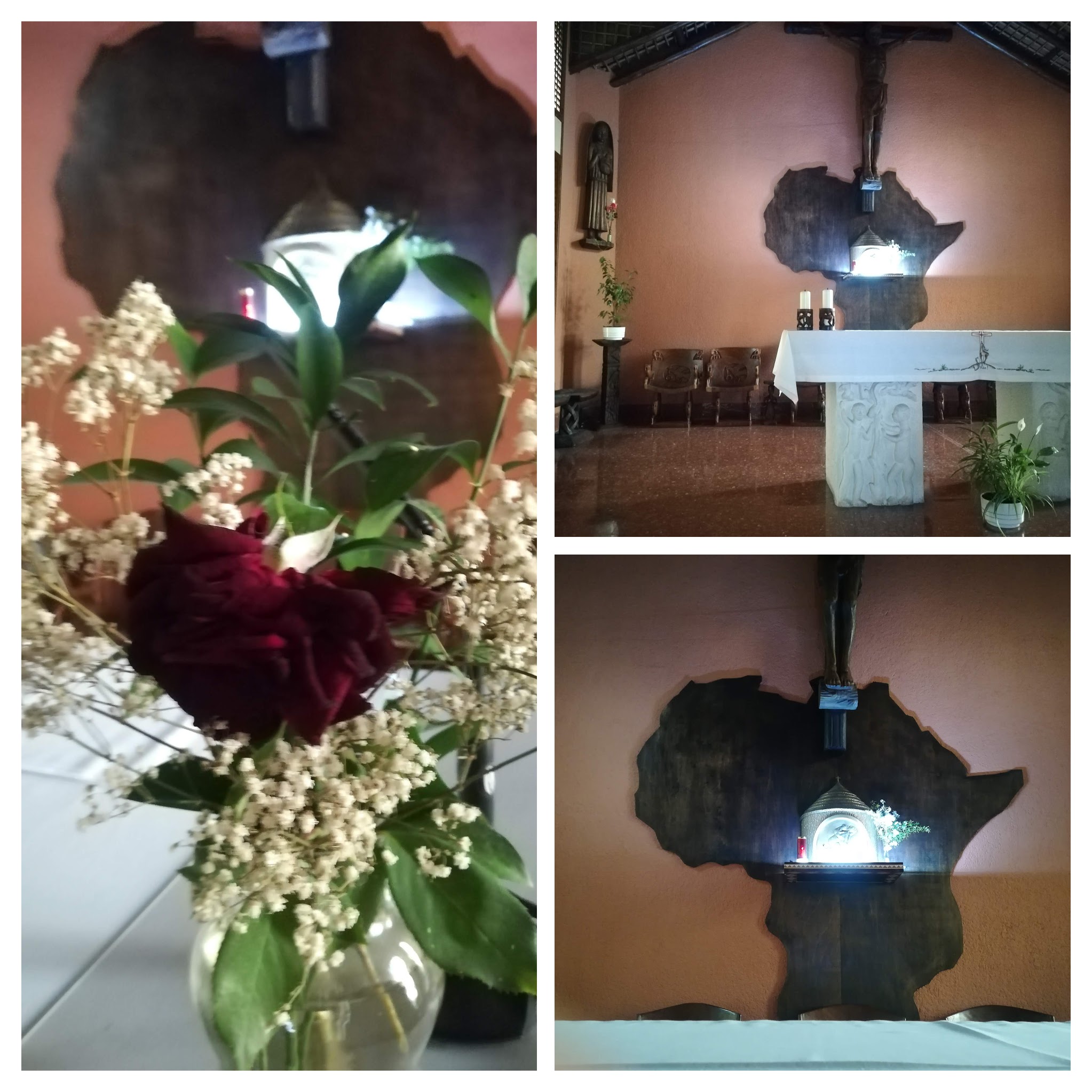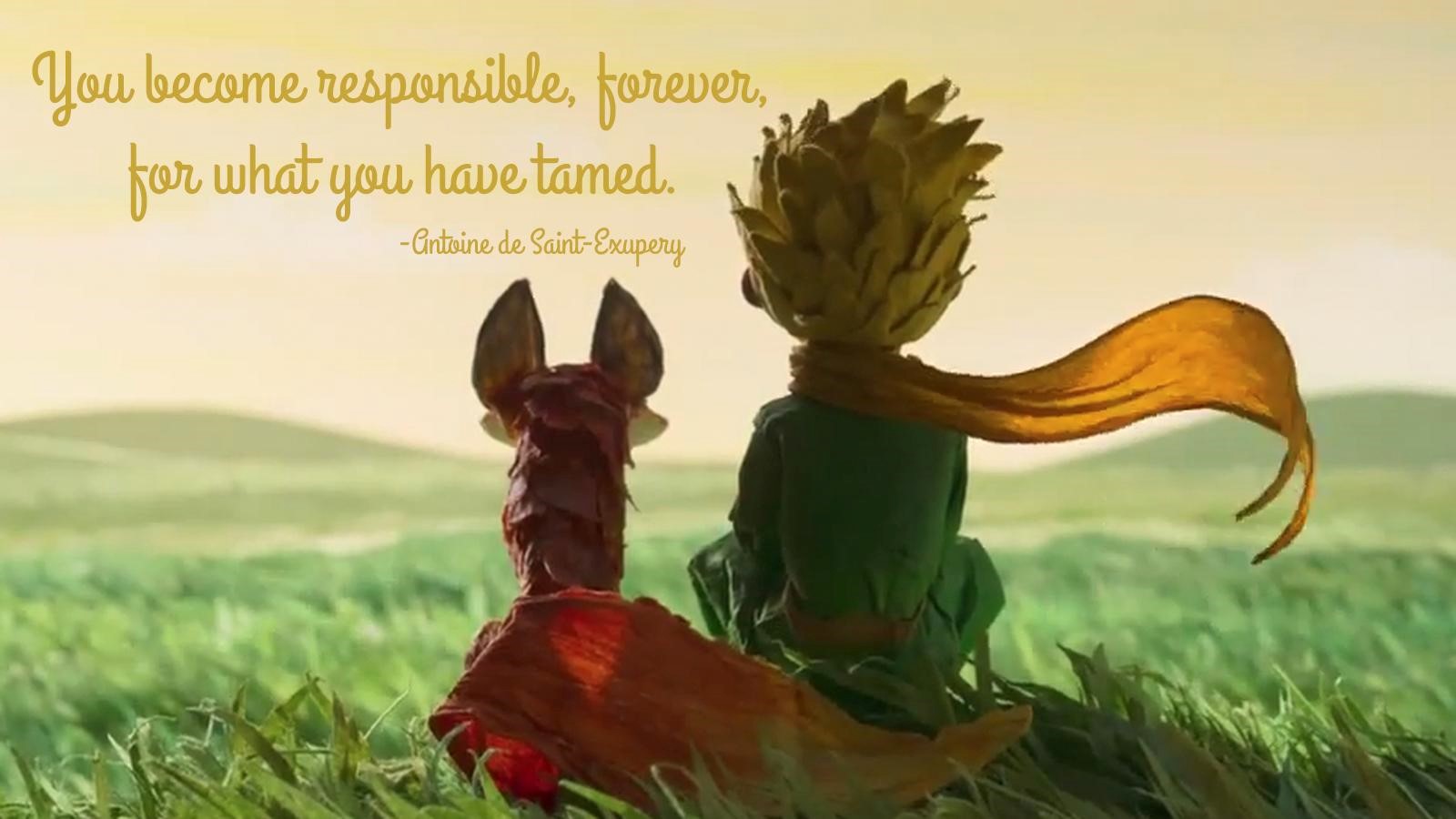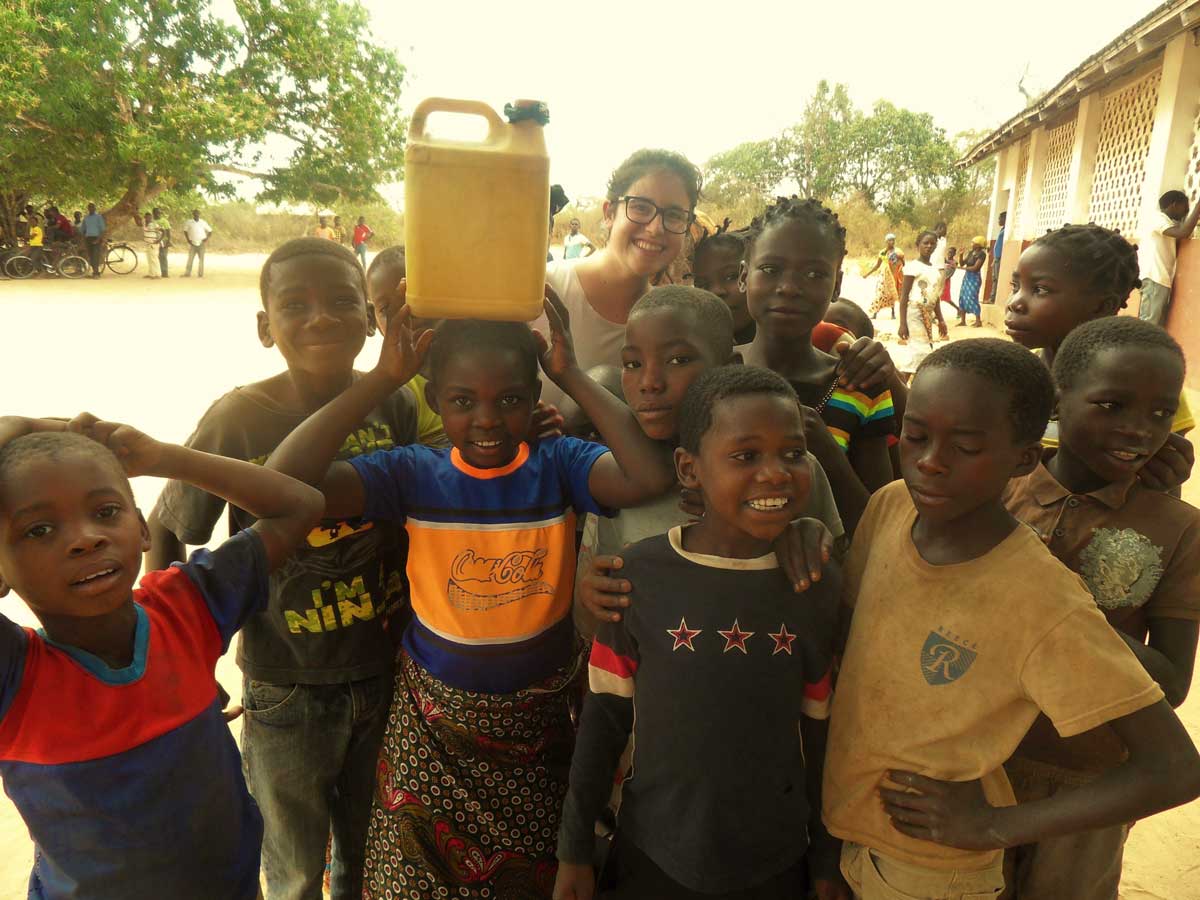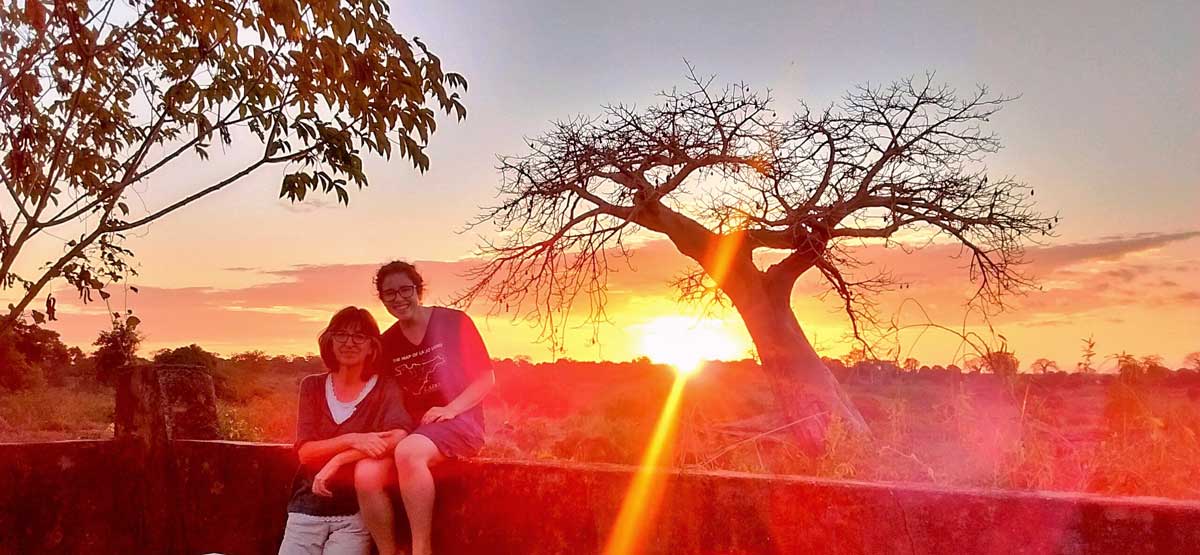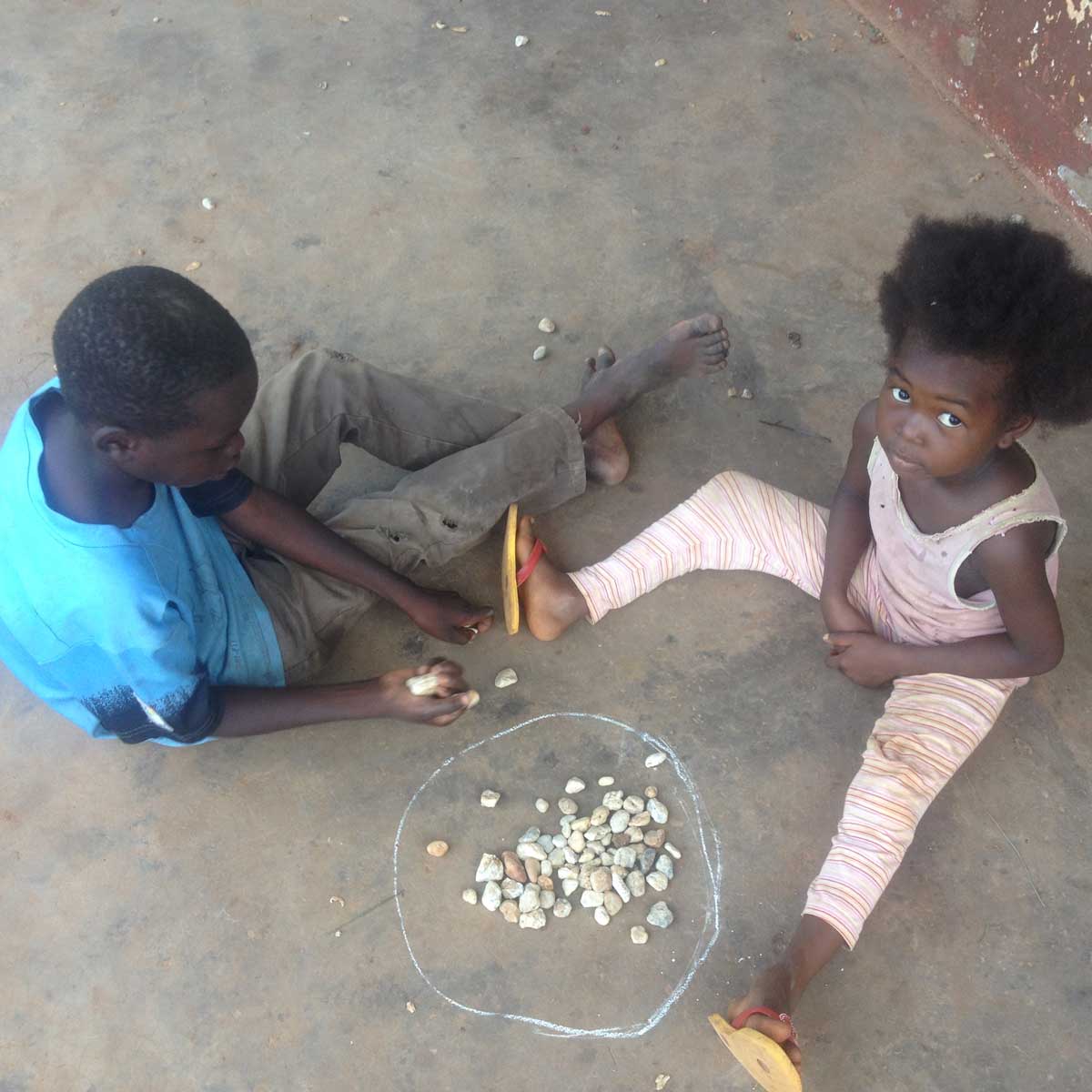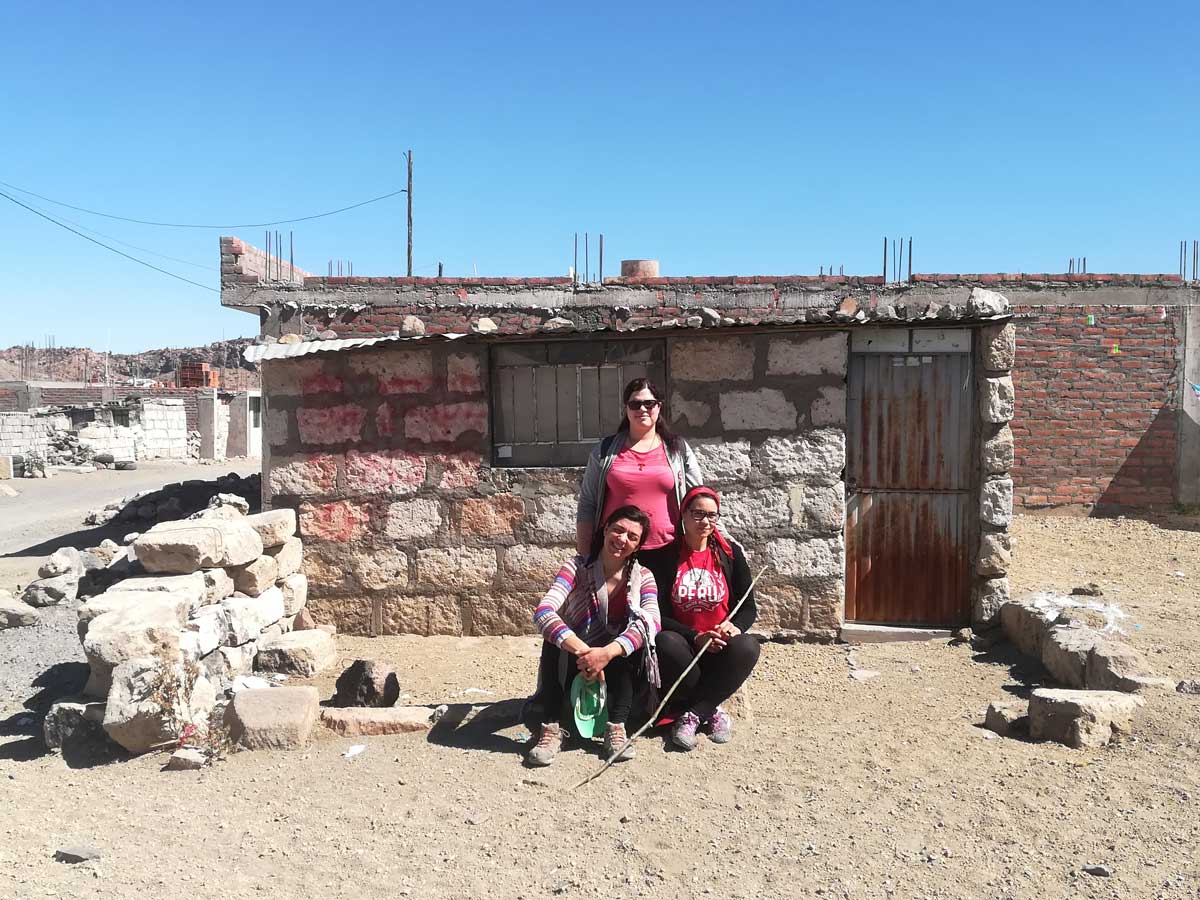
Hi!
How’s the heat wave going? Here we had some very sunny days when you just wore short sleeves and the sun was still scorching you a bit. But when it’s cloudy or there is no sun, it gets cooler. We also had a couple of windy days that, with the dust we have around here, were unbearable. They say that, in this respect, this is the worst month…
Two more weeks have gone by and, even though everything is more or less the same, there have been surprises…
A 10 year old neighbor child died of brain cancer… She died a day before her birthday… The girls did not know her or her family, but another neighbor asked us if we would go to pray, so we showed up. We prayed the rosary with them and decided to stay until they were ready to go to the cemetery. But, as they were leaving, an elegant woman appeared. She had been a volunteer in the hospital in Lima where they had attempted to cure the child. The father asked us to accompany her. A little doubtful, at the end we boarded the bus they had rented. The woman sat with us and told us more. Her name is Jessica and was the “Lady in Pink” of Miriam (this is for those who have read Oscar and the Lady in Pink or seen the movie Letters to God).When the Mom and the child were stranded alone in Lima, she had been their angel…
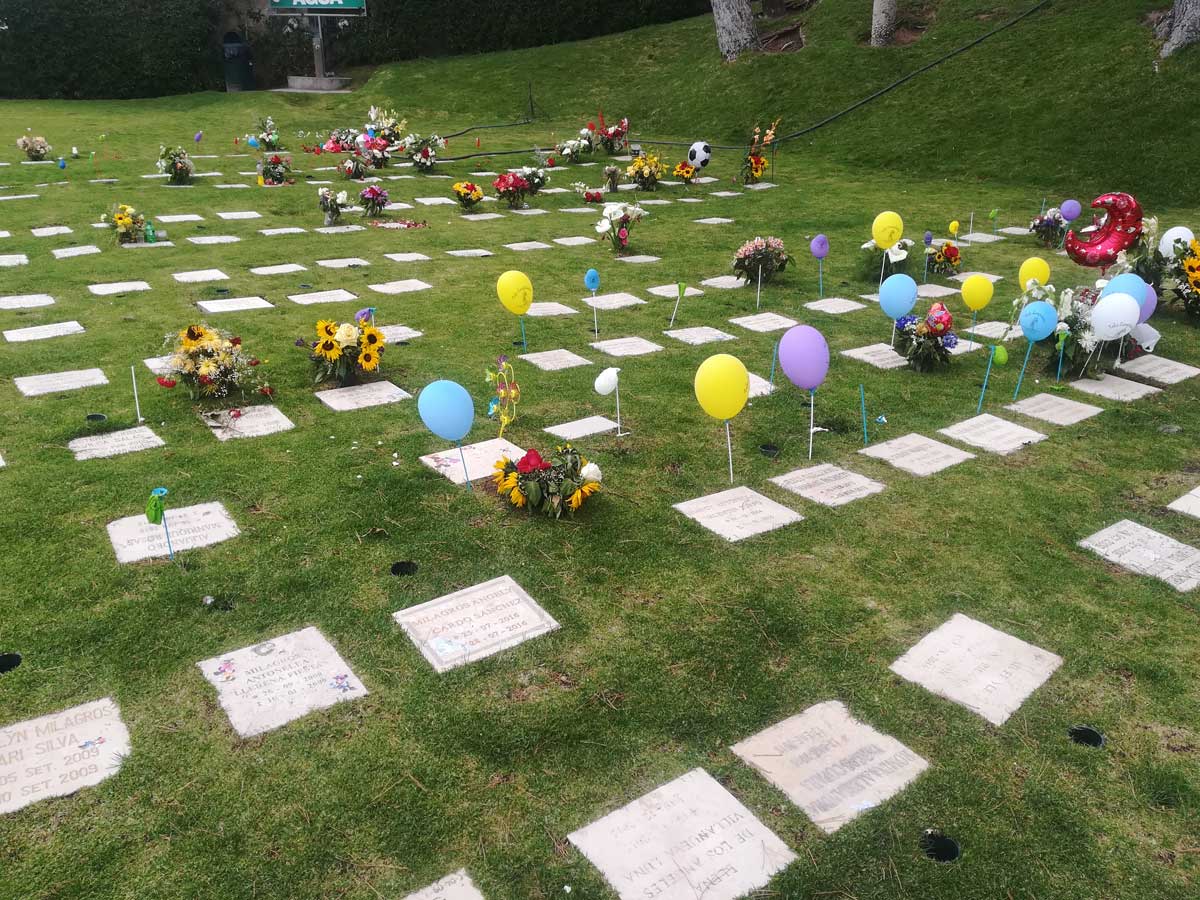
The cemeteries over here (for those who can pay up to going into debt to do it) are very beautiful. Everyone is buried in the ground and something like a flower or a little item is placed in before they are covered with dirt. On her coffin they placed the birthday cake…
Afterwards before we left the brought some drinks and then at the gate we were all invited over. Back home they had food for all. It struck me how Mom and Dad were going through all this separately… They did not get together even to say goodbye to the coffin and returned home in different cars… It might have been for personal reasons of their own, but we thought of it as an example of the distance they keep in their behavior at times. There is also the aspect of how concerns are always left to the women and she had been the one who, more than anyone, lived through this illness. In the end, while he was sharing a drink with other relatives, she was sitting on a bench chatting with Jessica, and for sure these were intimate and special conversations that she could not share with other friends and relatives.
It was a very sad day, even though we did not know them… On the other hand, it was nice to have met a Lady in Pink in the flesh. As for me, too, it made me relive and remember many goodbyes and losses and have lots of people present to me… To join again in the sorrows of these families and in the prayer for those who left…
“To be with the people.” That’s why we are here, but one never knows what it entails and the shape it takes…
The week continued with a lot of comings and goings because it was the formation week for the laity in Good Shepherd parish (in Independencia, the nearby neighborhood) and there was no stopping, ending up late every day. On top of that, elections are coming up and, as it happens the world over, that’s when things get fixed. In this case, they are paving part of the road, which will be fine when it will be done, but right now we have to face a detour and there is more chaos than usual. I also noticed that this little routine of being ready to leave an hour early and be in my PJs and have a moment of prayer together, I could do without. Getting back to the course given by the Comboni Missionaries, with talks one better than others, but generally good. On the last day they had the Lectio Divina while a meeting was going on in the public square, which caused a big mess… For this reason, it costs me to get into it, also because I still do not go for the religiosity of some people around here… I feel far away from them. At times I feel like judging while at other times I envy their faith… But in both cases I feel like I’m living on a different planet…
 On July 28 we celebrated the Fiestas Patrias (National Holidays) as I already told you, and on Friday morning there was a parade of the neighborhood schools and some authorities. It was nice to go see it, but it strikes you to see the importance they give to marching… From pre-school to college, children to professors… All without exception and with pride. Fr. Conrado was commenting on the amount of class time wasted in rehearsals… It looks to me as a type of rather odd militarization. The messages delivered are all about country in a rather exaggerated manner without any room for criticism or nuances, according to me. But the preschoolers were great and their principal’s speech was beautiful, when they won.
On July 28 we celebrated the Fiestas Patrias (National Holidays) as I already told you, and on Friday morning there was a parade of the neighborhood schools and some authorities. It was nice to go see it, but it strikes you to see the importance they give to marching… From pre-school to college, children to professors… All without exception and with pride. Fr. Conrado was commenting on the amount of class time wasted in rehearsals… It looks to me as a type of rather odd militarization. The messages delivered are all about country in a rather exaggerated manner without any room for criticism or nuances, according to me. But the preschoolers were great and their principal’s speech was beautiful, when they won.
In conjunction with the Holidays, the mothers of the women group decided to have a picnic to share some time together. When we reached the place, we found also some young people with a group from the Holy Childhood. Usually, there is music to attract people, but on that day a neighbor appeared who was furious and almost attacked a young woman, because the music bothered him. He also threw a stone that, fortunately, did not hit her. When we arrived, the girl was crying and was very scared, while the man was still complaining in a very rude way and threatening the group. When he left, we called the police. Hours later, when they arrived, we were able to talk the girl into going and file a complaint because she was not too sure about doing it, and her mother even worse. They are very afraid of revenge… Paula accompanied them in the police car and we said that she could go only if they were going to bring her back, but later they played dumb and left them there. A Comboni brother arrived and started some serious talk about the fact that there had been children present and this man had posed a risk, but the policeman became confrontational and asked him if he wanted to have them arrested for contempt… No comment…
The finishing touch was a woman who, telling the story to others, said “he talked to him as if it were his wife!” The moral being that, if it’s your wife, then you may use that tone, but if not, you are being impolite… What’s “normal” for her is clear, no?
In spite of it all, life goes on with a mix of things: pre-school, visits… We went to visit the sick person who had been in the hospital, but is now at home, but we got there in the middle of a crisis and we had to turn into instant nurses… The next day, when we returned to see him, he was a little better and by the end we were chatting about some of these thoughts that inevitably come up, such as “why me?” or what is there to learn from what happens in life. Visiting some other families we have also seen grave examples of domestic violence… Lots of things that stir you up and make you question your faith, the faith of the people…
On Thursday, after praying and having breakfast with the Comboni Missionaries, we did not have a meeting because several of them were on retreat. We took advantage of that to go with Fr. Conrado to pay a visit to the tomb of Danielito, the child of Carmen and José, two CLM from Spain who worked here, who died just a few hours after birth. The girls had already been here on his birthday, because here it is customary to come to “celebrate the birthday” with the dead, especially if they are children. It was very nice and it is also very special for José and Carmen to know that we go visit their child from Arequipa. There is a very deep history, both personal for their work and as a journey of faith, with him. The cemetery is also very precious with all the details we find on the children’s tombs. It made quite an impression to see how many babies die at birth or soon after.
And this last weekend turned out to be both tiring and intense, but greatly enjoyable.
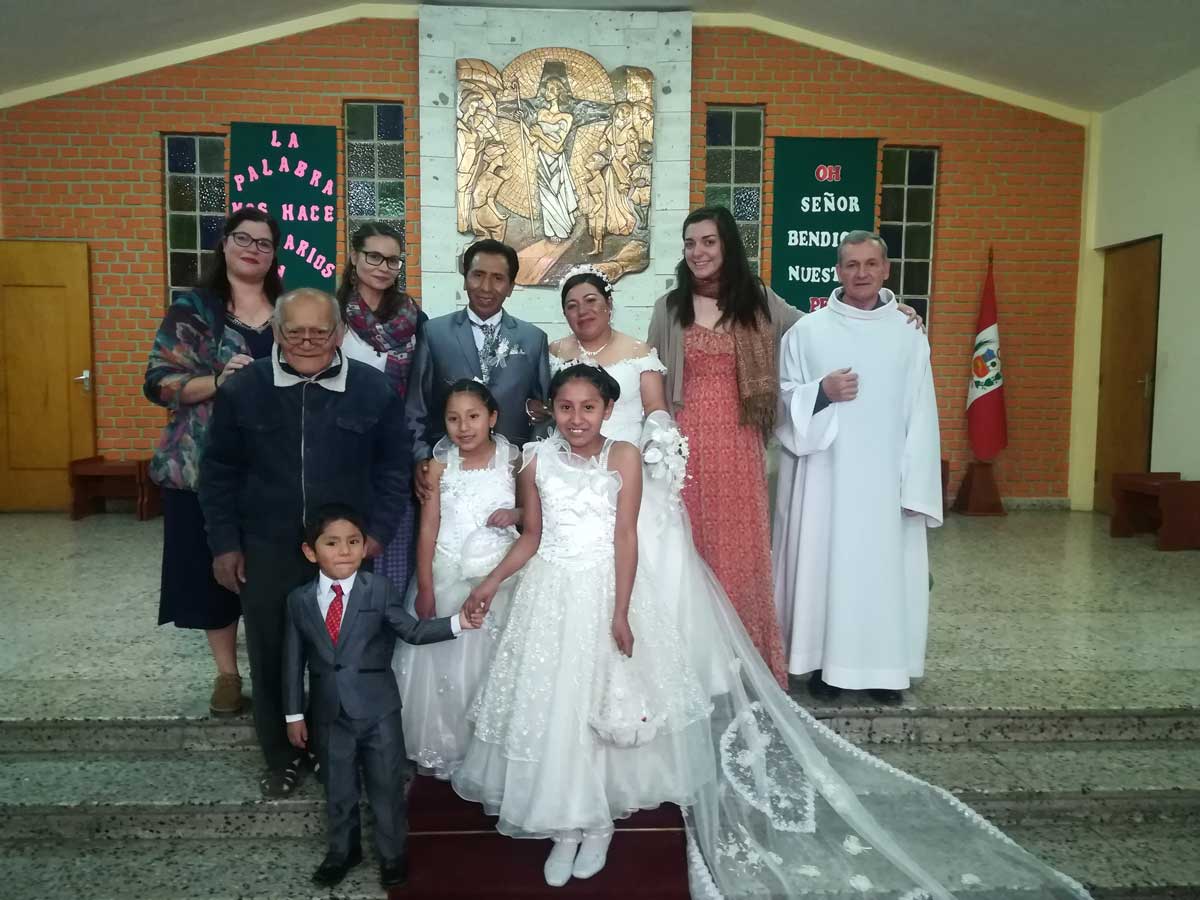
On Saturday we went to a wedding! Soledad and Alex are a wonderful couple who, having been confirmed recently, decided to get married and “straighten out their relation with God.” Our daughter is going to make her First Communion this year and how can she receive communion without us? They kept on telling us. Because over here, it is rather common that couples live together, start building a house and improve it, have children… And in the end, the wedding remains a bit in the background. Naturally, if they aren’t married, they can’t receive communion. Paula and Neuza were invited with great enthusiasm and I by my connection to them. When we arrived they asked us to sing and read, so that we started looking for songs and, even though we sang a cappella, it turned out decent enough. I noticed that, after the rings and the coins, they added a third symbol that was like a large chain that bound the two together. I believe it is the same idea of the cape or mantle, which is currently beginning to get lost back home.
For the reception they had rented a place near their home. I thought it strange that the toast, the speeches, the throwing of the bouquet and the cutting of the cake took place at the very beginning. Then the orchestra took over and everybody danced. We were a little lost and downright famished, but we were well positioned and warm and even though we were trying to disengage ourselves and leave discretely, the couple themselves came over to invite us to dance and to be at the tossing of the bouquet (how embarrassing!). Finally, consistent food arrived, even though by then we almost were no longer hungry, and then came the gifts. The money, instead of being given in an envelope, was being pinned to the flaps of the couple’s clothing (then we understood why the bride had even put on a jacket). At this point it’s when they uncorked the wine and brought out cases of beer… Just the opposite of what we are used to! We left soon after and they insisted briefly that we stayed, but understood that it was time for us to go (here begins the separation and we are “the sisters”). It was very nice, because all through it they were very grateful for our presence and attentive to make us happy.
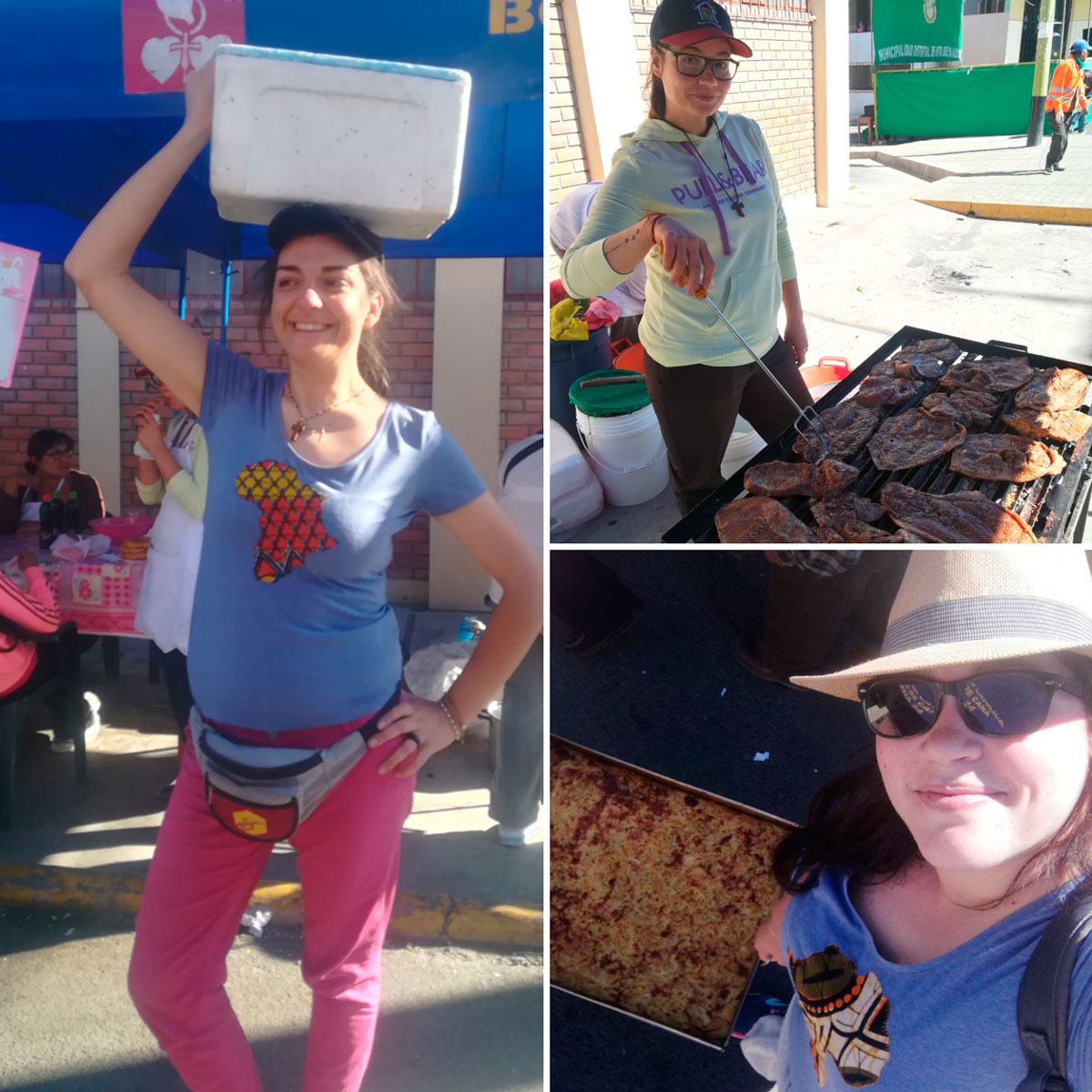
A few hours later, the alarm clock called us to go to the super feast at Good Shepherd parish. We had been asked to help sell tamales and the door of the church after the 7:00 AM Mass. Incredible as it may sound, the church was packed to overflowing and we sold them in no time flat. Then we helped set up tents, make posters, help with logistics, selling food and giving a hand here and there… In the end, we spent most of the day selling the Villa baked noodles, lollipops (poloflash) and helping out at the grill… There were many spots with music, volleyball games, and soccer for the younger set, and bingo which was well attended. Naturally, we didn’t win anything… We got back after 7:00 by bus, because the cars had all gone, since we stayed behind to clean up.
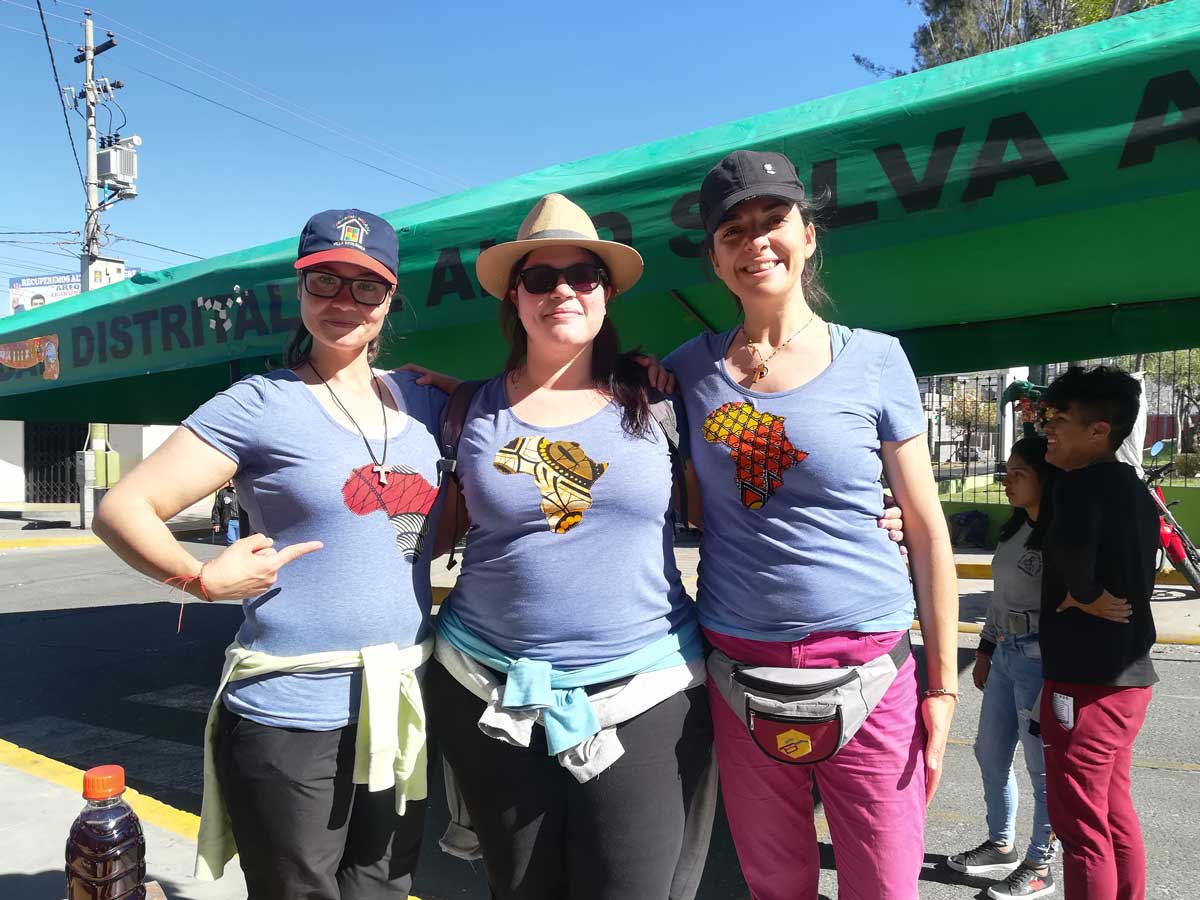
In truth, at these events, you see all kinds of similarities. Some few people are very involved and others, who at a meeting promised to give a hand, never even showed up. The woman at the grill was left alone with just another woman and Neuza provided most of the help with Paula and I pitching in… We were a little bit like “jack of all trades” and did it with enthusiasm, but this is not the point. Anyway, I said it! Nothing new.
With Paula and Neuza all is well. Some days we are a little apart but only for a short while and of no consequence. There are many hours every day when we do not see one another, we do things in different ways, at time weariness and other stories add up… nothing out of the ordinary as we live so close together. For sure, the good times and mutual banter win by a mile. There have also been really cool days when we talked and reflected together in depth. It amazes me that they are five years younger and have already experienced so much… Our lives are so different, but we also have this treasure of being able to look at others and understand them for who they are.
Finally… Lots of little things that move you and upset you… But also cool times with the girls and with the people. And now a whole week of vacation in Puno and La Paz, disconnecting and re-energizing. This will be my next chapter.
 Kisses.
Kisses.
Aitana, CLM Spain




